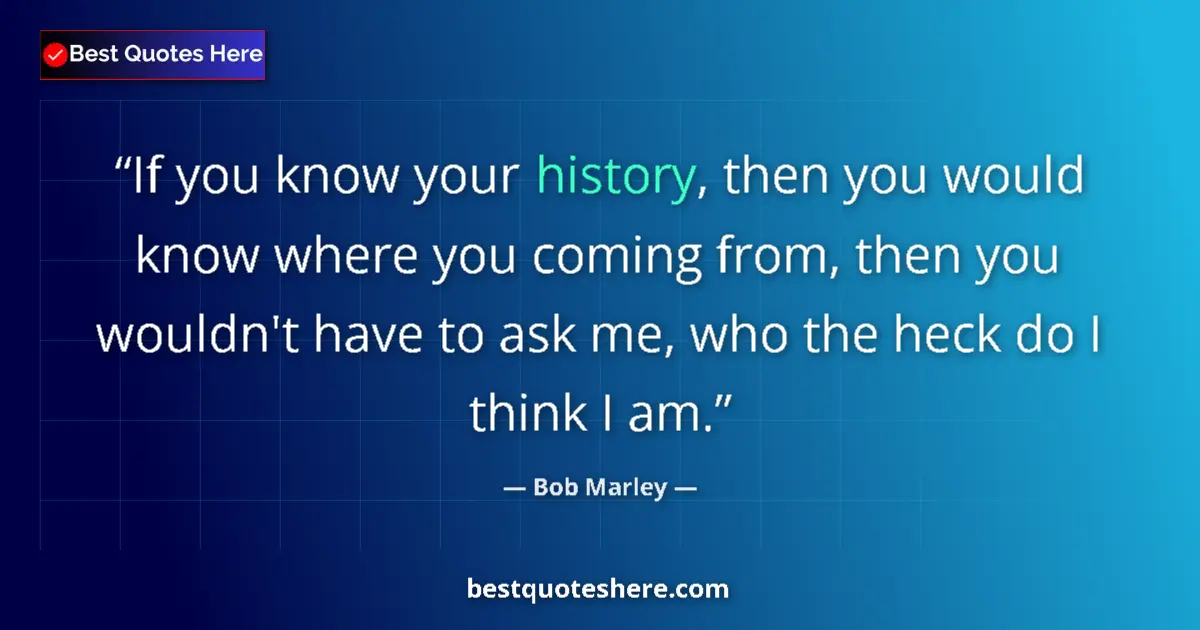"If you know your history, then you..." - Quote by Bob Marley
If you know your history, then you would know where you coming from, then you wouldn't have to ask me, who the heck do I think I am.

More by Bob Marley
“Today they say that we are free, only to be chained in poverty.”
“Well, it grow together. It's like, first time I try to write a song is the first time I try to play the guitar. And so I can write a song without the guitar. But it really grow together. I really like stay with my guitar. But it just happen, is the inspiration come through man. Because, I personally, it look like, could I write a whole heap a tune, it look like. But I pick special tune to write. Cause a man can think of plenty things. Yuh know wah ah mean.”
“My life is only important if i can help plenty of people”
More on Identity
“The content of your character is your choice. Day by day, what you choose, what you think and what you do is who you become.”
“I didn't pay much attention to the whistles and whoops, in fact, I didn't quite hear them. I was full of a strange feeling, as if I were two people. One of them was Norma Jeane from the orphanage who belonged to nobody; the other was someone whose name I didn't know. But I knew where she belonged; she belonged to the ocean and the sky and the whole world.”
“Historically, actors have been made very famous for roles that were something that was far - - Richard Widmark comes to mind (playing Tommy Udo in "Kiss of Death") or something like that, where you do some famous role and everybody imitates you for the rest of your life. But obviously it's much more fun to play something you're not than it is to play something you are.”
More on History
“Windows 95 was a nice milestone.”
“In the ancient city of London, on a certain autumn day in the second quarter of the sixteenth century, a boy was born to a poor family of the name of Canty, who did not want him.”
“Ancient history has an air of antiquity. It should be more modern. It is written as if the specator should be thinking of the backside of the picture on the wall, or as if the author expected that the dead would be his readers, and wished to detail to them their own experience.”